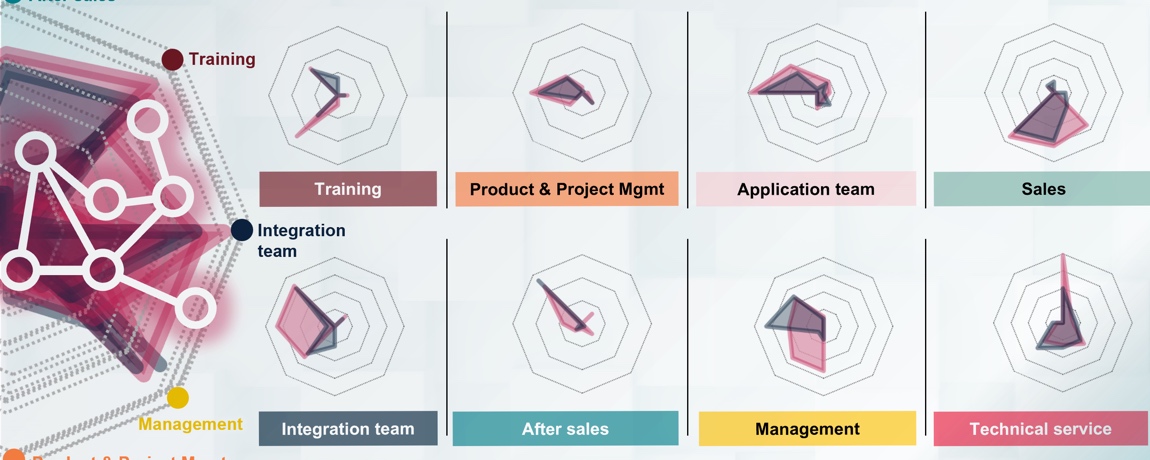
Services
- Pre-Design
Client Objectives
- Resolved various departmental divisions and implicit hierarchies by providing more centralized collaboration spaces
- Provided workplace flexibility through open areas that could easily transform into brainstorming zones or spaces for small meetings via movable partitions
- Transformed the entrance area and corridor to be a more interactive customer experience, with visibility into the production process and company culture
- Increased worker flexibility and autonomy through a diversity of space types
TRUMPF
Connecting All Parts of the Office
TRUMPF is a German industrial machine manufacturing company founded in 1923. Like many other heritage and family-owned organizations, it must always strike a delicate balance between tradition and innovation. PLASTARC was brought on in 2020 to help TRUMPF envision how these two values could co-exist in a future workplace. TRUMPF’s office in Plymouth, Michigan, which is both a sales and service-based campus, exhibited a growing tension between client-facing and service-based operations.
As they embarked on an office re-design with PLASTARC’s support, addressing perceptual and spatial divisions in the Plymouth office became one of TRUMPF’s main priorities.They hoped to enhance and increase the frequency of interdepartmental collaborations while still upholding consistent confidentiality practices.
In an effort to holistically consider the underlying dynamics of the client-facing and service-based operations, PLASTARC organizationally and spatially mapped out departmental relationships through the lens of workflow, coordination, communication, and collaboration. This exercise, in conjunction with follow-up interviews and workshops, uncovered several strategic opportunities that would support client-facing engagements and internal business flows. Amongst other initiatives, PLASTARC demonstrated how the Plymouth office could cultivate flexibility through a diversity of space types, and how TRUMPF could enhance productivity by balancing dependencies and adjacencies between departmental teams.
With all of this in mind, PLASTARC’s recommendations for the Plymouth office redesign included providing centralized collaboration/flex spaces, and transforming the entrance area and corridor to provide a more interactive customer experience that would highlight production processes and company history. Though PLASTARC’s initial research findings served as a smaller local pilot effort, they had the potential to drive global organizational objectives. Newly uplifted by the promise of a future workplace, Plymouth-based TRUMPF employees began seeing their office as a tech-infused destination where customers could connect with TRUMPF’s mission and values, and where colleagues could more easily exchange ideas, regardless of their department.

